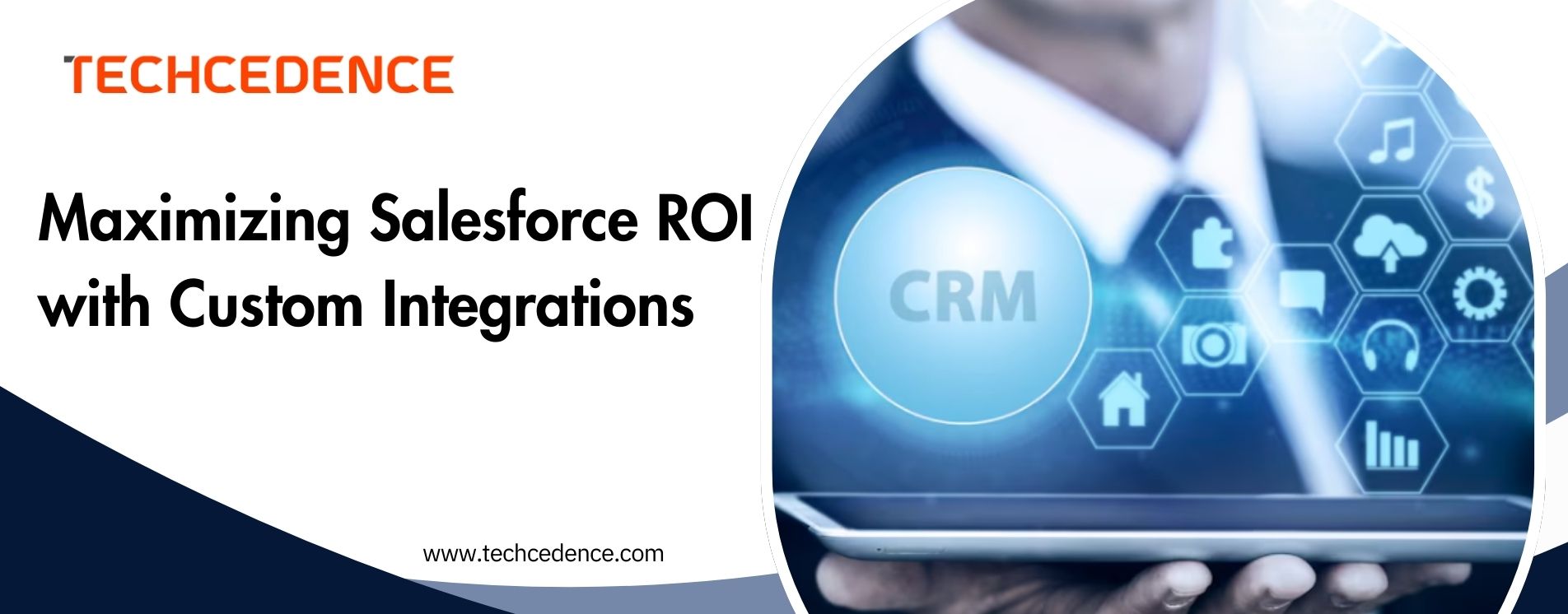
Categories : Uncategorized
Author : Date : Sep 6, 2024
As organizations navigate the complex business landscape, they increasingly turn to Salesforce as their go-to customer relationship management (CRM) platform. However, to truly harness the power of Salesforce and maximize return on investment (ROI), businesses must look beyond out-of-the-box solutions. Custom integrations have emerged as a key differentiator, allowing companies to tailor Salesforce to their unique needs and workflows.
The progress of Salesforce integration has been impressive. Despite the ongoing value provided by pre-built connectors and AppExchange offerings, custom integrations have taken center stage in driving innovation. These tailor-made solutions deliver unmatched flexibility and productivity.
Custom integrations offer a key advantage in their ability to eradicate data fragmentation. Many organizations struggle with the challenge of data isolation. With custom integrations, it becomes possible to establish a unified data ecosystem, enabling seamless information flow between Salesforce and other vital business applications. This unified strategy not only improves data precision but also offers a comprehensive perspective on customer engagements and business processes.
The development of custom integrations has been made simpler and more accessible with the rise of low-code and no-code platforms. These platforms enable non-technical developers and business users to create complex integrations without extensive programming knowledge. This shift has hastened innovation and lightened the load on IT departments. Nonetheless, it’s important to strike a balance between empowerment and governance to ensure that integrations align with overall business strategy and security protocols.
Custom Salesforce integrations now heavily feature Artificial Intelligence (AI) and Machine Learning (ML). AI-driven integrations have the ability to forecast customer behavior, automate intricate decision-making processes, and offer actionable insights. When AI capabilities are integrated with Salesforce, businesses are able to build predictive models that anticipate customer needs, streamline sales processes, and improve the overall customer experience.
The integration of Salesforce with the Internet of Things (IoT) has provided new opportunities. Businesses can now capture and analyze real-time data from connected devices through custom IoT integrations. This capability is especially beneficial for industries like manufacturing, healthcare, and logistics. Through the integration of IoT data with Salesforce, companies can track product performance, anticipate maintenance requirements, and provide proactive customer service.
The development of custom integrations now places significant emphasis on security and compliance considerations. With the growing complexity of data protection regulations, it is essential for businesses to ensure that their Salesforce integrations adhere to stringent security standards. Advanced encryption methods, strong authentication processes, and thorough audit trails have become crucial elements of any custom integration strategy.
The concept of “Integration-as-a-Service” (IaaS) has gained traction in the Salesforce ecosystem. This model allows businesses to outsource the development and maintenance of custom integrations to specialized providers. IaaS offers the benefits of custom solutions while reducing the internal resource burden. It also ensures that integrations remain up to date with the latest Salesforce releases and industry best practices.
Event-driven architectures have revolutionized the way custom integrations are designed and implemented. Instead of relying on traditional batch processes or periodic synchronizations, event-driven integrations respond to real-time changes in data or system states. This approach significantly reduces latency and improves the overall responsiveness of integrated systems.
The role of APIs in custom Salesforce integrations is crucial and highly significant. We’re seeing a shift towards more sophisticated API management strategies. Businesses are implementing API gateways and adopting microservices architectures to create more flexible and efficient integrations. These advanced API strategies allow for better scalability and easier maintenance of complex integration ecosystems.
Custom integrations are also playing a crucial role in enhancing the mobile capabilities of Salesforce. With an increasingly remote and distributed workforce, mobile-first integrations have become essential. These integrations ensure that field sales teams, remote workers, and executives have access to real-time data and functionality, regardless of their location.
The concept of “Integration Lifecycle Management” has emerged as a critical consideration for businesses implementing custom Salesforce integrations. This approach involves treating integrations as living entities that require ongoing monitoring, optimization, and evolution. By implementing robust lifecycle management practices, organizations can ensure that their integrations continue to deliver value over time and adapt to changing business needs.
As we look to the future, the potential of quantum computing in Salesforce integrations is an exciting frontier. While still in its early stages, quantum computing could revolutionize data processing and analysis capabilities, potentially transforming how businesses leverage their Salesforce data.
To simplify the challenging and constantly evolving realm of Salesforce custom integrations, partnering with an experienced Salesforce consulting firm like Techcedence can prove to be extremely beneficial. As a leading Salesforce consulting service, Techcedence offers valuable advice to help you make the best choices for maximizing your return on investment. By making use of the knowledge and skills provided by Salesforce consulting services, businesses can effectively navigate through the intricacies of custom integrations.
In conclusion, achieving maximum Salesforce ROI via custom integrations necessitates a strategic and future-oriented mindset. Businesses can develop a Salesforce ecosystem that effectively fits their specific requirements and delivers tangible business benefits by embracing cutting-edge technologies, prioritizing security and compliance, and embracing adaptable integration architectures. As the environment continues to change, businesses that prioritize robust and flexible integration strategies will be well-placed to utilize Salesforce as a genuine driver for growth and creativity.